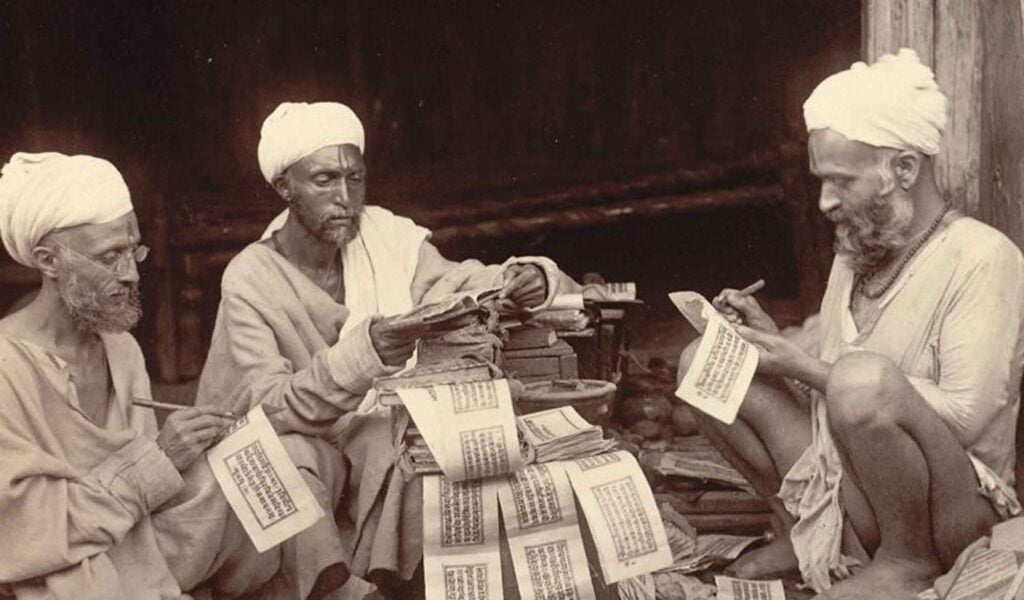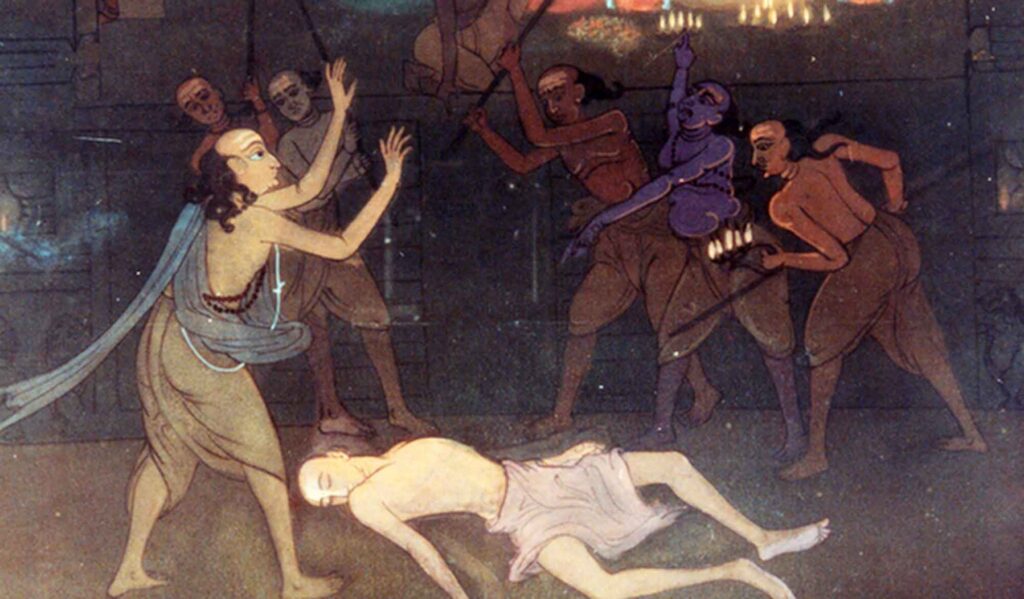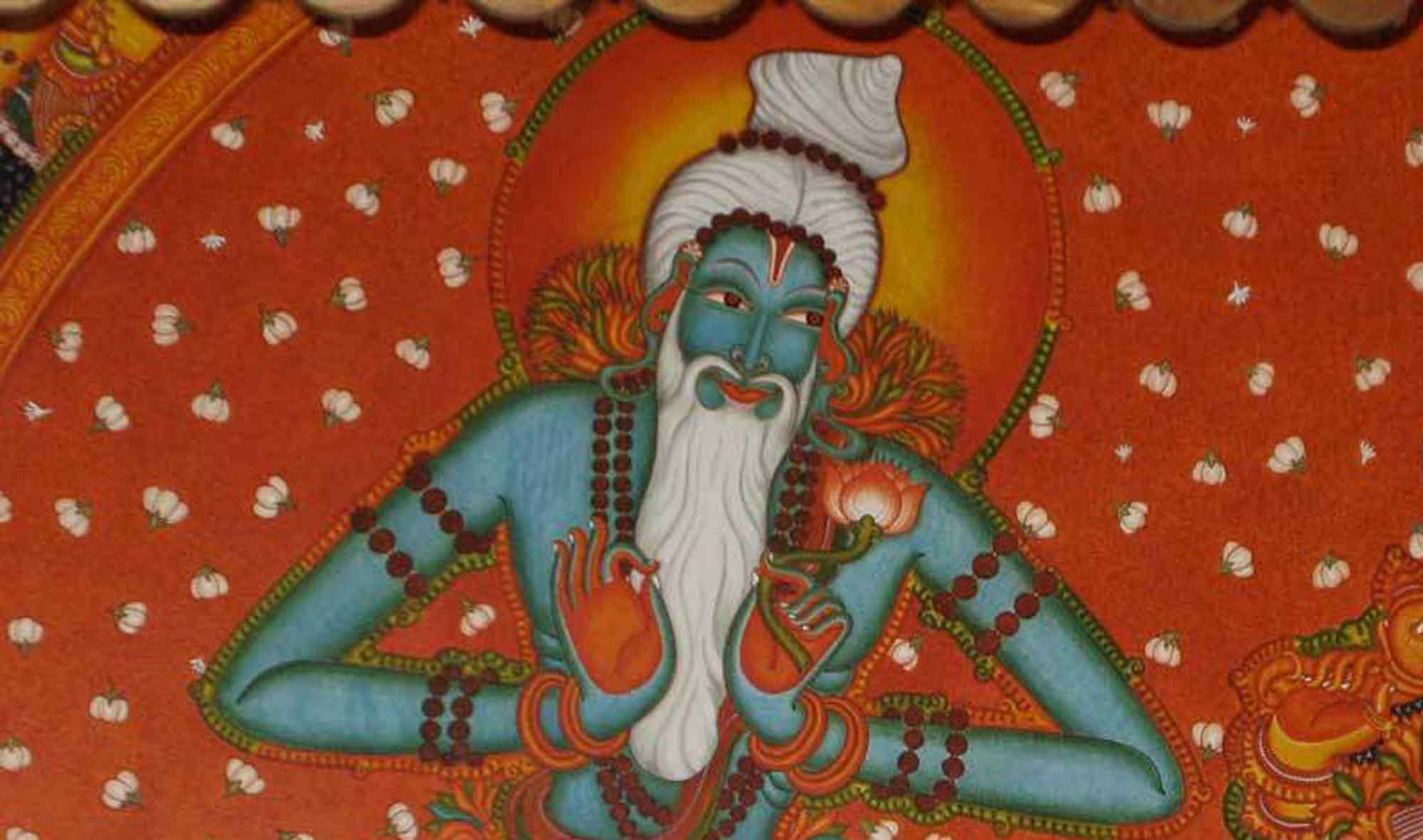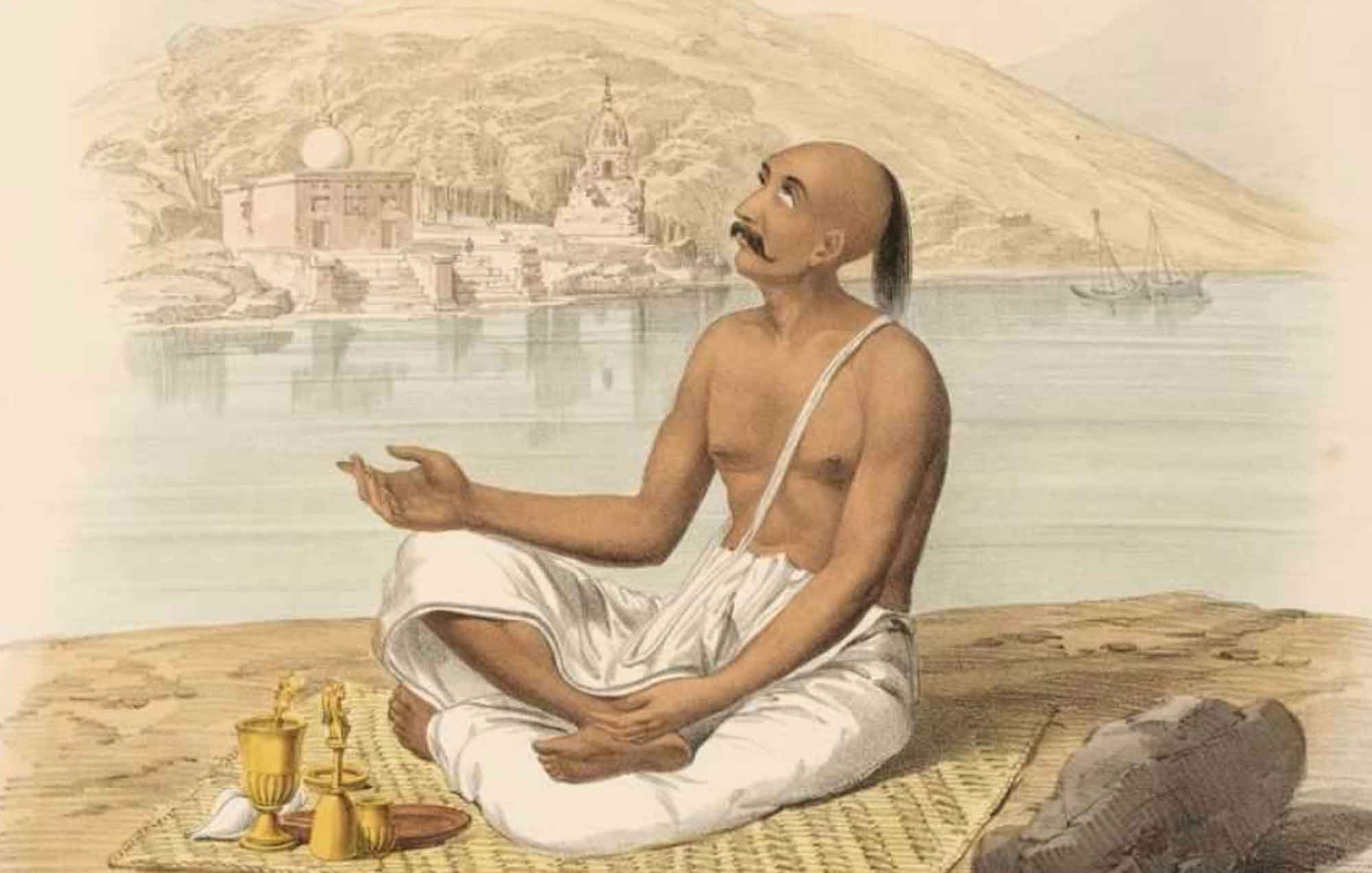Overview
Britis-rājya u Vaiṣṇava-vṛnda (British Rule and the Vaiṣṇavas) was published in the first edition of Sajjana Toṣaṇī, Vol. 1 Issue 1 in 1881. Herein, Bhaktivinoda Ṭhākura praises British rule in India as favorable for Vaiṣnavas as compared to previous regimes.
(translated by Swami B.V. Giri)
In the Christian year 1757, the Supreme Lord graciously handed over this vast kingdom of Bhārata to our British brothers. Since then, all types of suffering have been removed from Bhārata. The āryans residing in Bhārata have been enjoying the happiness of their rule for a long time and are now resting in their old age. The fourth period of the āryan race has appeared. At this time, it is their duty to live a peaceful life and contemplate the hereafter. If it had been under the Muslims, neither of these two things would have been achieved. How much worldly suffering the people had to endure during the reign of cruel rulers such as Siraj-ud-Daula. All thoughtful gurus can understand that. Everyone can understand how much disturbance there was in relation to thoughts of the hereafter by considering the destruction of Hindu temples by the fanatical Aurangzeb. Lately, the āryans have been living very happily under the rule of their British brethren in Bhārata. The difficult work of suppressing bandits, defeating enemies etc., can no longer trouble them. They are enjoying prosperity with the least amount of tax.
Vaiṣṇavas are the main heroes amongst the āryan race. They have especially gained happiness under this British rule. They are receiving more and more help from the British authorities in their spiritual work. All their holy places are safe, there are more transportation facilities, and there is an abundance of necessities everywhere. British rule has become dearer to them than Hindu rule, since during Hindu rule, varṇāśrama-dharma was especially strong. Thus, pāramārthika-dharma (transcendental religion) became very weak and hid within the Vaiṣṇava’s heart. At this time, as the varṇa system became weaker, the Vaiṣṇavas were able to discuss pāramārthika-dharma impartially with supreme happiness and without any obstruction. They are all praying to the Supreme Lord with one voice that British rule will remain in Bhārata and that they will be able to continue their bhagavat-bhajana.













